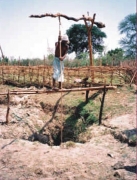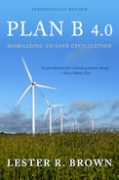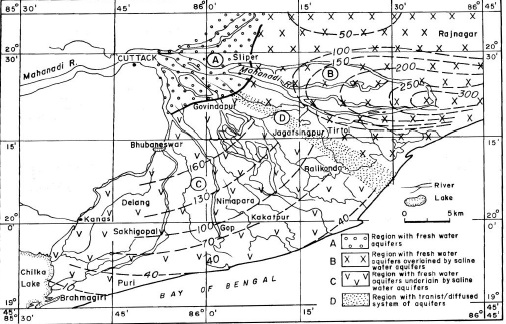/topics/society-culture-religion-and-history
Society, Culture, Religion and History
Jagatguru Shankaracharya Swami Swaroopanand and Swami Ramdev offer support to Dr. G.D. Agrawal on his fast unto death
Posted on 23 Jul, 2010 11:42 PMJagatguru Shankaracharya Swami Swaroopanand of Dwarkapeeth sent his personal emissary Swami Dharanand to convey his support to Dr. G.D. Agrawal whose third fast-unto-death to ensure the natural flow in river Bhagirathi (Ganga) from Gangotri to Uttarkashi entered its second day. Yesterday (July 21) Swami Ramdev spent an hour in the evening with Dr. Agrawal and offered his full support.
Relevance of Meltwater in River Basin Hydrology
Posted on 23 Jul, 2010 10:53 PMA peer paper in Science Magazine focuses on the core of a riverine system, the upstream basin, and its impact on the entire river basin.
Project Boond - V, a comprehensive mitigation initiative in the drought prone regions of Bharatpur
Posted on 21 Jul, 2010 01:47 PMWith the failure of monsoons in Rajasthan and dry-up of the Bilaspur dam, the water situation assumes graver proportions in most parts of Rajasthan, besides Jaipur, Tonk and adjacent districts. These areas, now in the news for acute water shortage problems, have always depended upon monsoons for their traditional rainwater-harvesting systems and the riverine sources.
While the Government has taken remedial measures with construction of tube-wells across the rural and drought-prone areas, they have been sporadic and insufficient at their best. Merely announcing relief measures and planning of schemes on paper as an immediate disaster management strategy are not solutions to mitigation of water problems in this State.
Prof G.D. Agrawal resumes fast unto death to save the Ganga, Swami Avimukteshwaranand and others to join in support
Posted on 21 Jul, 2010 11:10 AMForwarded to the Portal by: Ayan Biswas
Image and News Courtesy:
Shankracharya designate Swami Avimukteshwaranand ji presided over an emergency meeting organized by Manushi Sangathan, Ganga Ahvaan and Ganga Yamuna Jal Biradri to express our strong protest against the patently illegal decision of the Group of Ministers giving clearance to the Loharinag-Pala dam on the Ganga River. The following expert members of the NGRBA also participated in the meeting to express their strong protest having been kept in the dark about the appointment of the GoM which has passed a virtual death sentence on the most sacred river of India: Rashid Hyatt Siddiqui, Rajendra Singh, Rama Raota and Ravi Chopra.
A rapid geohydrological study of microwatersheds from Bolangir district, Orissa state - A report by ACWADAM
Posted on 16 Jul, 2010 03:50 PM This document by ACWADAM is a report of a rapid geohydrological assessment of some of the microwatersheds from parts of Bolangir district Orissa.
This document by ACWADAM is a report of a rapid geohydrological assessment of some of the microwatersheds from parts of Bolangir district Orissa.
Bolangir district in Orissa forms a part of one of the hottest and backward regions of India with low land-productivity, and opportunities and technologies for agriculture in the district remain relatively unexplored.
Vagaries of rainfall and the underlying hard-rock geology further compound the problem and limit agricultural productivity to a great extent. Given such natural uncertainties, systematic implementation of a watershed management programme is the most viable avenue to overcome the problems of this region.
Bolangir district was thus selected as pilot area to conduct a pre-feasibility exercise for planning of water resources management. ACWADAM, Pune was invited, along with Samaj Pragati Sahayog, Bagli to conduct this pre-feasibility exercise.
Providing a plan to save civilization - Books from the Earth Policy Institute
Posted on 11 Jul, 2010 05:24 AM Earth Policy Institute, is a non-profit environmental research organization dedicated to providing a vision of an eco-economy and a roadmap on how to get there. The Institute was founded in 2001 with the following goals:
Earth Policy Institute, is a non-profit environmental research organization dedicated to providing a vision of an eco-economy and a roadmap on how to get there. The Institute was founded in 2001 with the following goals:
- to provide a global plan (Plan B) for moving the world onto an environmentally and economically sustainable path
- to provide examples demonstrating how the plan would work, and
- to keep the media, policymakers, academics, environmentalists, and other decision-makers focused on the process of building a Plan B economy.
The basic research of the Institute has been published in the form of seven books:
A study of saline freshwater interface phenomena in the Mahanadi delta region (Orissa)
Posted on 10 Jul, 2010 10:40 PM The subsurface aquifer systems in Mahanadi delta region in Orissa (India) is largely characterized by two groups of freshwater aquifer systems, both of which are prone to saline water mixing/migration with time and development:
The subsurface aquifer systems in Mahanadi delta region in Orissa (India) is largely characterized by two groups of freshwater aquifer systems, both of which are prone to saline water mixing/migration with time and development:
- The south western Mahanadi delta region is represented by unconfined to semi-confined freshwater aquifers underlained by brackish/saline aquifer systems with a diffusion boundary.
- The north eastern parts of Mahanadi delta is represented by deep freshwater confined aquifers overlained by brackish/saline water aquifers with aquitard/ aquiclude boundary.
Groundwater management: The critical issue dealing with normative concerns of equity and sustainability in watershed development in India.
Posted on 02 Jul, 2010 04:31 PMABSTRACT
Recent technical literature relevant for the hydrologists of the country – A compilation by the National Institute of Hydrology
Posted on 01 Jul, 2010 04:10 PMThe report is a compilation of abstracts of hydrological literature from select national and international Journals for the period 1991-95. Though a sizeable number of Journals are published in the field of hydrology and water resources, scientists involved in different studies and projects find it difficult to go through all of them.
Ek Phirangi Raja - Chutki Bhar Namak Paseri Bhar Anyay: The story of Frederick Wilson and the Great Indian Hedge
Posted on 18 Jun, 2010 12:33 AM Ek Phirangi Raja
Ek Phirangi Raja
In this essay, Romesh Bedi recounts the true story of Frederick E Wilson, a British army officer, who deserted the army after the Sepoy Mutiny of 1957, escaped to the Himalayas, and settled in Harsil, a remote village in Uttarakhand on the banks of the Bhagirathi.
Wilson makes a flourishing business from the export of skins, fur, musk from the region, and rips the local deodar forest, to cash in the growing demand for wooden sleepers during the expansion of the Indian railways by the British, which were sent down to the plains through the rivers. Wilson soon acquires a lease from the Raja of Tehri-Garhwal, for his timber business and keeps the Raja happy by giving him a share of the profits, and even begins to mint his own local currency, because of which locals start calling him Raja.





